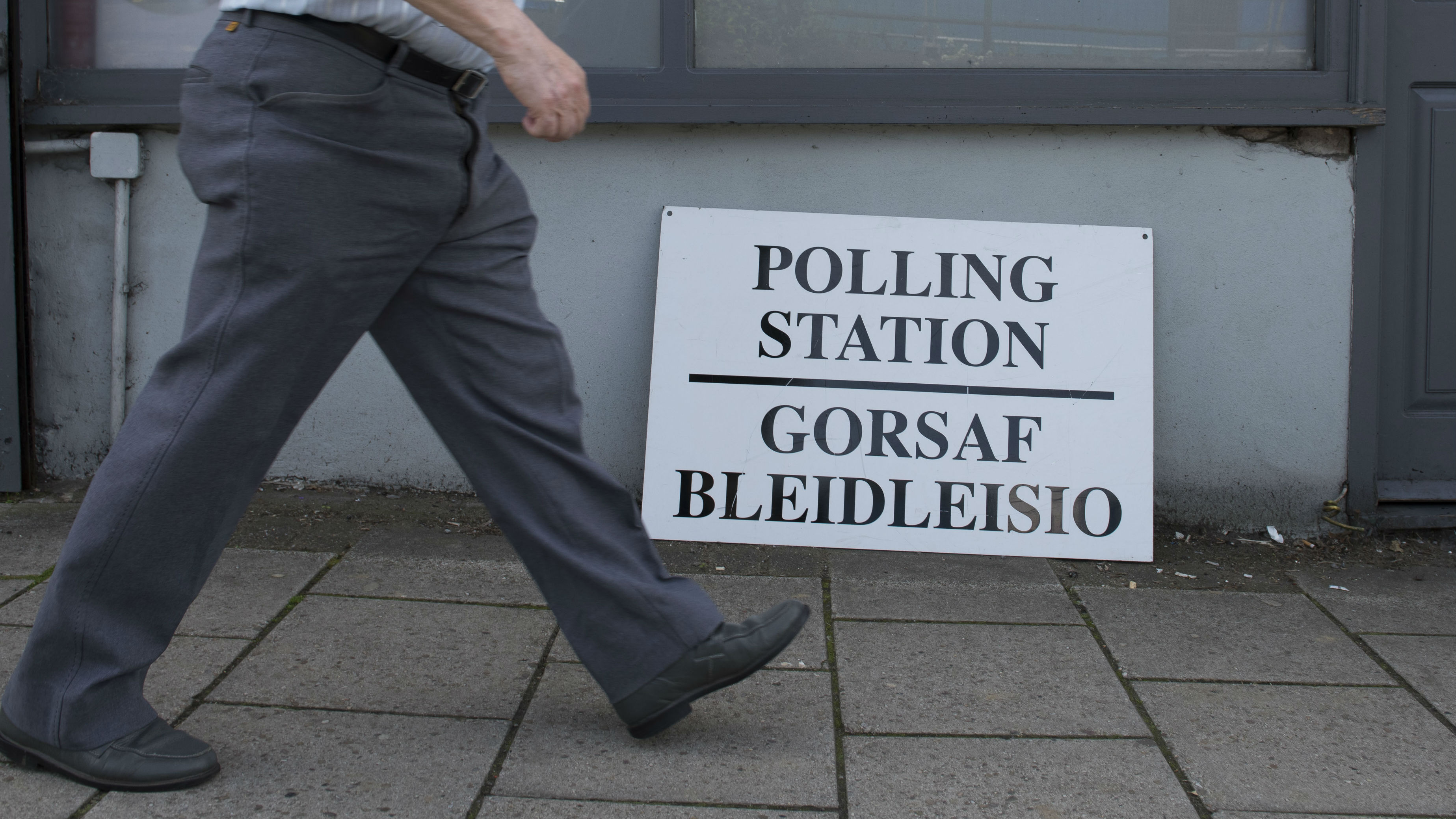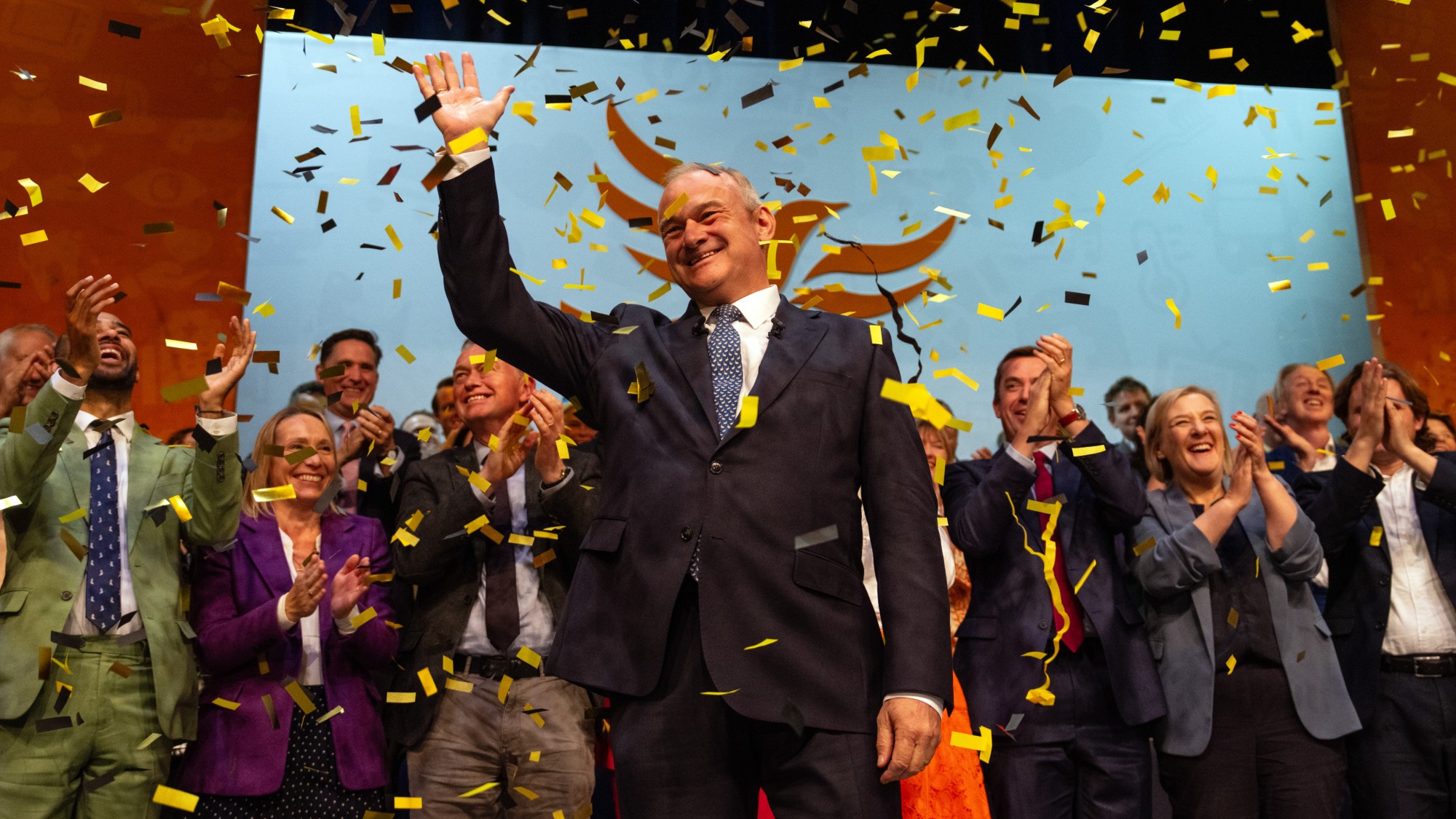Should the voting age be lowered to 16?
Welsh National Assembly announces plans to let under-18s go to the polls - but not everyone is in favour

A free daily email with the biggest news stories of the day – and the best features from TheWeek.com
You are now subscribed
Your newsletter sign-up was successful
The Welsh National Assembly has announced a series of electoral reform proposals that could see 16- and 17-year-olds given the right to vote in local elections.
The changes outlined in the bill, announced on Monday, would mean that around 75,000 young people would be added to Wales’ electoral roll - and would almost certainly galvanise those campaigning for similar changes to the general election process across the UK.
All opposition parties in Parliament currently back the idea of lowering the voting age to 16, which would extend the right to vote to a total of 1.5 million teenagers and bring the rest of the UK into line with Scotland, where the voting age for Scottish parliamentary and local elections was lowered in 2015.
The Week
Escape your echo chamber. Get the facts behind the news, plus analysis from multiple perspectives.

Sign up for The Week's Free Newsletters
From our morning news briefing to a weekly Good News Newsletter, get the best of The Week delivered directly to your inbox.
From our morning news briefing to a weekly Good News Newsletter, get the best of The Week delivered directly to your inbox.
However, an attempt to lower the threshold in time for December’s general election was thwarted in October when Parliament ruled out a vote on the issue.
–––––––––––––––––––––––––––––––For a round-up of the most important stories from around the world - and a concise, refreshing and balanced take on the week’s news agenda - try The Week magazine. Get your first six issues for £6–––––––––––––––––––––––––––––––
Why is the voting age 18?
The voting age in the UK was 21 until 1969, when it was lowered to 18 by Labour Prime Minister Harold Wilson under the Representation of the People Act.
A free daily email with the biggest news stories of the day – and the best features from TheWeek.com
Campaigners subsequently began pushing to reduce the age threshold further to 16, but bills proposing the change were rejected by Parliament in 1999 and 2005.
In 2014, 16- and 17-year-olds were granted a vote in Scotland’s independence referendum, a right that was extended the following year to cover Scottish elections.
“This - combined with the overwhelming age gap between Remain and Leave voters in the UK’s 2016 European referendum - has firmly placed the voting age back on the national agenda,” according to The Independent.
The pros
Votes at 16 would be “consistent with other areas of responsibility”, says Britpolitics, which points out that people of this age can “marry, join the Armed Forces and consent to medical treatment”.
The educational site also argues that the government “needs to reduce the political alienation of young people”, who are affected by a “wide range of political decisions” including “tax rates, job seekers’ allowance, university fees, bullying and public transport”.
Calling for the age cut ahead of the 2017 general election, Molly Scott Cato, Green Party MEP for Southwest England, said: “At 16, you’re eligible to pay taxes, you can leave home, you can get married, you can even join the Armed Forces.
“If you can do any of these things, you are entitled to vote - you are entitled to have a say in the direction of your country, you're entitled to have your say on the key issues affecting your life.”
David Runciman, a professor of politics at Cambridge University, adds that an ageing electorate means young people are now also “massively outnumbered, resulting in an inbuilt bias against governments who plan for the future”.
Earlier this year, the Institute for Public Policy Research think-tank argued that the voting age should be lowered to 16 because today’s young people face a “toxic inheritance” of environmental crises and will probably be economically worse off than their parents as a result of “decisions taken by elites in these generations, most of whom have only a small chance of being alive by 2050”.
The cons
Critics of the proposal point out that many of the powers allowed to 16-year-olds are limited, such as not being able to join the Armed Forces without the permission of their parents.
“At 16, people may not have the maturity and life experience to make political judgements,” says Britpolitics, which adds that they “may still be under the influence of parents and teachers or college lecturers” and “may also be easily influenced by popular trends”.
Professor Philip Cowley, a political scientist at Queen Mary University of London, suggests that overall turnout could drop if the voting age were lowered, because evidence indicates that 16- and 17-year-olds would be less likely to vote than older people.
Money could be spent to specifically target these younger voters, as was the case in the 2014 Scottish Independence referendum, he told the BBC.
But “if young voters are ready to vote then we should not need to allocate specific resources to mobilise them”, Cowley said.
“That we do indicates that they are not ready.”
-
 Political cartoons for February 14
Political cartoons for February 14Cartoons Saturday's political cartoons include a Valentine's grift, Hillary on the hook, and more
-
 Tourangelle-style pork with prunes recipe
Tourangelle-style pork with prunes recipeThe Week Recommends This traditional, rustic dish is a French classic
-
 The Epstein files: glimpses of a deeply disturbing world
The Epstein files: glimpses of a deeply disturbing worldIn the Spotlight Trove of released documents paint a picture of depravity and privilege in which men hold the cards, and women are powerless or peripheral
-
 How corrupt is the UK?
How corrupt is the UK?The Explainer Decline in standards ‘risks becoming a defining feature of our political culture’ as Britain falls to lowest ever score on global index
-
 How long can Keir Starmer last as Labour leader?
How long can Keir Starmer last as Labour leader?Today's Big Question Pathway to a coup ‘still unclear’ even as potential challengers begin manoeuvring into position
-
 The high street: Britain’s next political battleground?
The high street: Britain’s next political battleground?In the Spotlight Mass closure of shops and influx of organised crime are fuelling voter anger, and offer an opening for Reform UK
-
 Is a Reform-Tory pact becoming more likely?
Is a Reform-Tory pact becoming more likely?Today’s Big Question Nigel Farage’s party is ahead in the polls but still falls well short of a Commons majority, while Conservatives are still losing MPs to Reform
-
 Taking the low road: why the SNP is still standing strong
Taking the low road: why the SNP is still standing strongTalking Point Party is on track for a fifth consecutive victory in May’s Holyrood election, despite controversies and plummeting support
-
 The Liberal Democrats: on the march?
The Liberal Democrats: on the march?Talking Point After winning their highest number of seats in 2024, can the Lib Dems marry ‘stunts’ with a ‘more focused electoral strategy’?
-
 Is Andy Burnham making a bid to replace Keir Starmer?
Is Andy Burnham making a bid to replace Keir Starmer?Today's Big Question Mayor of Manchester on manoeuvres but faces a number of obstacles before he can even run
-
 What difference will the 'historic' UK-Germany treaty make?
What difference will the 'historic' UK-Germany treaty make?Today's Big Question Europe's two biggest economies sign first treaty since WWII, underscoring 'triangle alliance' with France amid growing Russian threat and US distance